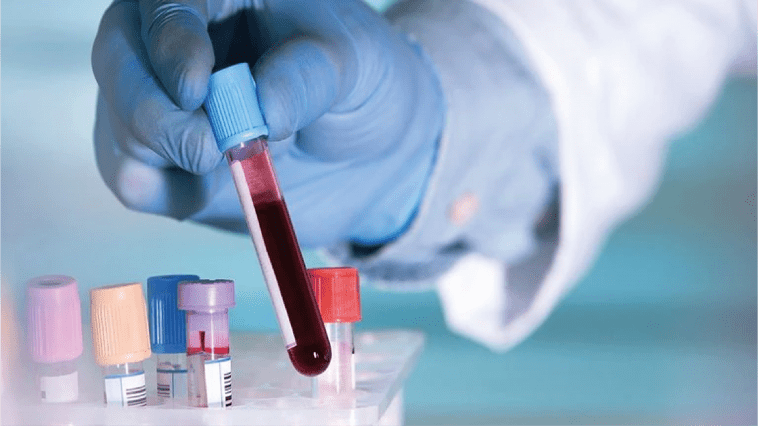A blood test could detect dementia up to five years before telltale signs appear, scientists say.
When patients suffer memory loss and other hallmarks of the disease, the brain has already suffered serious damage. But scientists from the German Center for Neurodegenerative Diseases say they have now identified three biomarkers that can act as a warning sign that someone is likely to have the condition.
The findings, published in the journal EMBO Molecular Medicine, could help doctors detect the disease early, which could slow its attack and delay its symptoms.
The researchers gave cognitive tests to 132 people between the ages of 18 and 77. They also took blood samples to analyze the levels of micro-RNA, small proteins that are involved in regulating cells.
The results showed that More than 90% of the patients who developed dementia in the next two years had elevated levels of three micro-RNAs: miR-181a-5p, miR-148a-3p, and miR-146a-5p. These are involved in regulating inflammation in the brain and help control how brain cells connect to each other. The scientists said they are now working on a blood test to detect them and that it could provide an early warning to dementia patients.

The study also looked at whether micro-RNA levels in mice could be used to detect dementia early. In mice, which can live up to three years, the first signs can be detected from 16 months of age.
For the research, the mice were subjected to memory tests and had their blood tested for micro-RNA every month and a half. The results showed that there may be seven elevated micro-RNAs among the mice that developed dementia.
Lead author Professor Andre Fischer said: “By the time dementia symptoms manifest, the brain has already suffered massive damage. We need tests that ideally respond before the onset of dementia and reliably estimate the risk of disease afterward. In other words, tests that give an early warning ”.
He added: “We are confident that the results of our current study pave the way for such tests. We see an increase in the blood level of these three micro-RNAs as a harbinger of dementia. We estimate that in humans this biomarker indicates a development that will occur between two and five years in the future”.

Several blood tests for dementia are already being developed, with the aim of speeding up the diagnosis of the disease.
A test for Alzheimer’s disease could detect the disease decades before symptoms appear, scientists say, by measuring levels of a protein that accumulates abnormally in the brains of sufferers.
Another looks for two proteins in the blood as indicators of a person’s risk of developing the disease. Dr. James Connell, Head of Research at Alzheimer’s Research UK, said: “This is research at a very early stage and the approach will have to be tested much more before we can know if it has any real potential to help with diagnosis or diagnosis. treatment of people with dementia”.
“Future dementia treatment and prevention is likely to be more effective if we can identify people who could benefit sooner, ideally before devastating symptoms like memory loss start to affect their lives. A cheap, simple, and reliable blood test is a key goal for researchers working to improve the diagnosis of dementia,” he added.
For Hilda Hayo, executive director of Dementia UK, “although this study is still in an early stage, any research that helps to identify people at higher risk of dementia is welcome”.
“There are many factors that influence the onset of dementia, including age, health, and lifestyle, so the increased risk does not mean that the person will definitely develop dementia. Nevertheless, an early warning of increased risk can prevent or delay the onset of dementia by allowing people to seek treatment for any health problems, including high blood pressure or cholesterol levels, in addition to helping them modify their lifestyle through regular exercise and healthy eating, “said the specialist.
Currently, dementia is diagnosed by cognitive tests and, in some cases, brain scans. The NHS says that most cases can be diagnosed after these evaluations.




GIPHY App Key not set. Please check settings